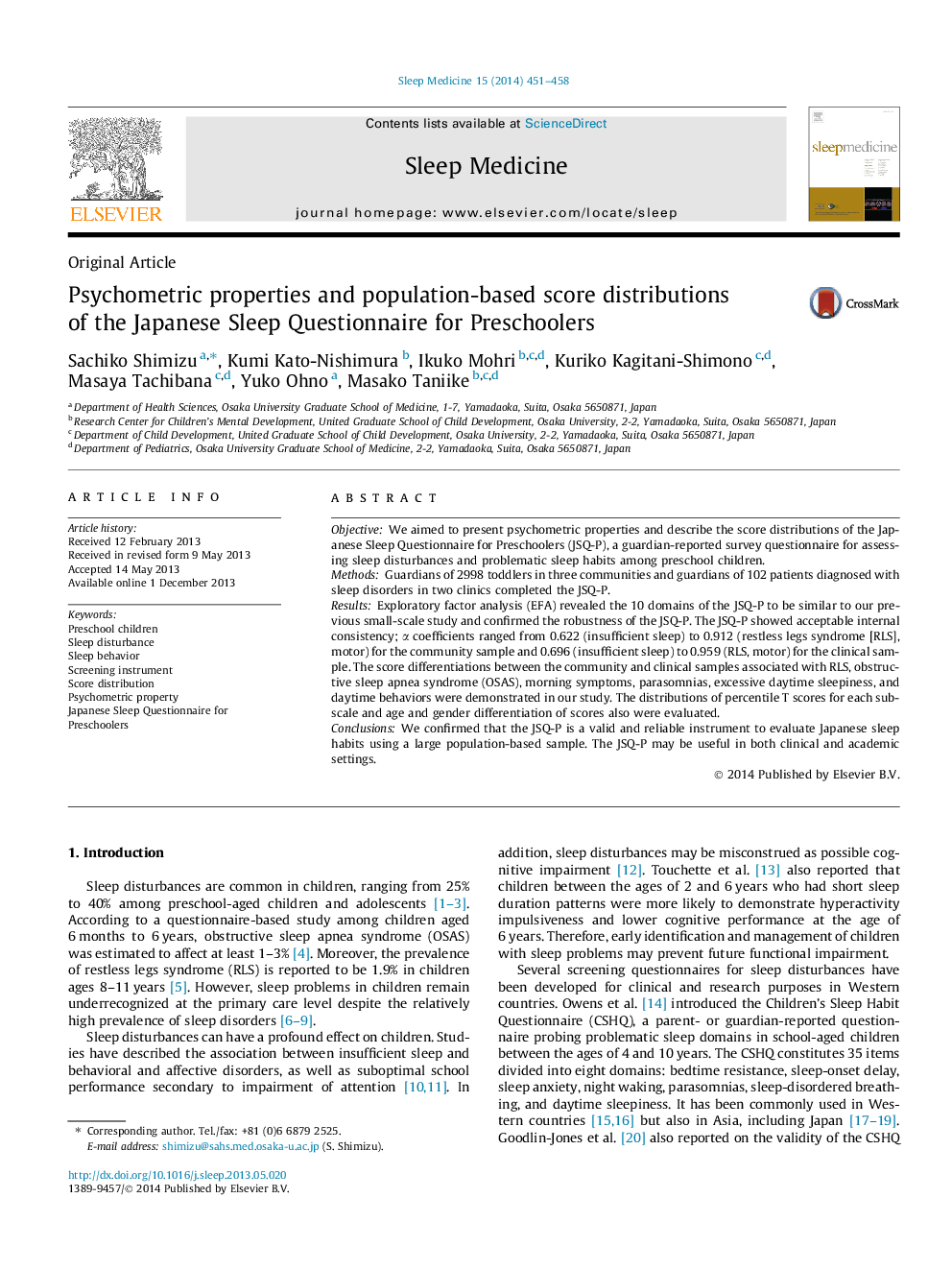| کد مقاله | کد نشریه | سال انتشار | مقاله انگلیسی | نسخه تمام متن |
|---|---|---|---|---|
| 3176149 | 1200248 | 2014 | 8 صفحه PDF | دانلود رایگان |
• We showed the psychometric properties of Japanese Sleep Questionnaire for Preschoolers.
• We described score distributions and cutoff points using a large community sample.
• Our results showed adequate validity and reliability using the questionnaire.
• We showed age and gender differences of score distribution in Japanese preschoolers.
ObjectiveWe aimed to present psychometric properties and describe the score distributions of the Japanese Sleep Questionnaire for Preschoolers (JSQ-P), a guardian-reported survey questionnaire for assessing sleep disturbances and problematic sleep habits among preschool children.MethodsGuardians of 2998 toddlers in three communities and guardians of 102 patients diagnosed with sleep disorders in two clinics completed the JSQ-P.ResultsExploratory factor analysis (EFA) revealed the 10 domains of the JSQ-P to be similar to our previous small-scale study and confirmed the robustness of the JSQ-P. The JSQ-P showed acceptable internal consistency; α coefficients ranged from 0.622 (insufficient sleep) to 0.912 (restless legs syndrome [RLS], motor) for the community sample and 0.696 (insufficient sleep) to 0.959 (RLS, motor) for the clinical sample. The score differentiations between the community and clinical samples associated with RLS, obstructive sleep apnea syndrome (OSAS), morning symptoms, parasomnias, excessive daytime sleepiness, and daytime behaviors were demonstrated in our study. The distributions of percentile T scores for each subscale and age and gender differentiation of scores also were evaluated.ConclusionsWe confirmed that the JSQ-P is a valid and reliable instrument to evaluate Japanese sleep habits using a large population-based sample. The JSQ-P may be useful in both clinical and academic settings.
Journal: Sleep Medicine - Volume 15, Issue 4, April 2014, Pages 451–458
